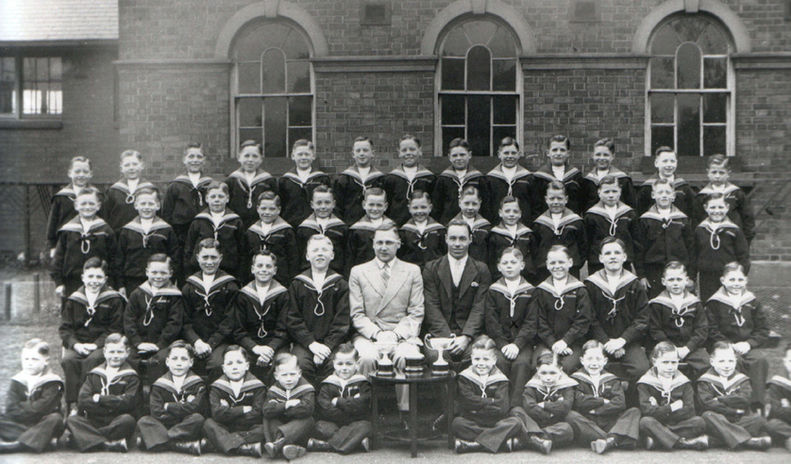


Explore Discover Enjoy

Location 15: Sunderland Boys Orphanage
Moving along the quadrant and sited on the east side of the moor opposite Moor Terrace you will be met by a classic Victorian institution established to meet the needs of those less fortunate, orphaned or in need.
Sunderland Boys Orphanage -1861
Sunderland East End Orphanage Asylum was founded in 1853 for the children of seafarers. The building was opened on 17th October 1861, under the patronage of the Bishop of Durham, and the Stallingers (define?) of Sunderland, the latter being responsible for the upkeep.
This building has a remarkable likeness to Queen Victoria’s Osborne House residence on the Isle of White and it is noted that the Queen herself asked to see the plans and made a donation of £100.00 towards its cost, estimated at £4,000.
The name of the orphanage was changed in 1936 to ‘The Boy’s Orphanage Sunderland’. In 1947 the building ceased to be an orphanage and became a community centre. The orphanage boys were eventually moved and relocated to Moorhill, Seaview Road, West Sunderland. But for almost 84 years the Orphanage was situated on the Town Moor and saw 800 boys pass through its doors. The boys were considered reliable citizens of the town, many of whom became heroes, both of the wars and the sea.
1853 A Private Act of Parliament
“An Act to enable the Bishop of Durham and the Freemen and Stallingers of the Borough of Sunderland to give up their respective Interests in certain Lands and Monies, for the Purpose of endowing an Orphan Asylum at Sunderland, and of making better Provision for the Spiritual Wants of the Parish of Sunderland; and to enable such Asylum to acquire and bold additional Land; and to enlarge the Powers and to provide for the better Regulation and Management of the said Asylum; and for other Purposes.”
The need for such institutions was a national one.
In 1861, it is estimated that 11% of children had lost a father by the age of 10, 11% a mother, and 1% had lost both parents (Czarnik).
This terrible predicament of children orphaned by the loss of a parent at sea, or injured, prompted the Bishop of Durham and The Freeman of Sunderland to raise funds for an orphanage.
“To board, clothe and educate in accordance with the principles of the Church of England poor boys……from any part of the kingdom whose father may be dead or suffering from confirmed lunacy or paralysis, to instil into them principles of Christianity and virtue, and to give them a superior nautical education.. “







